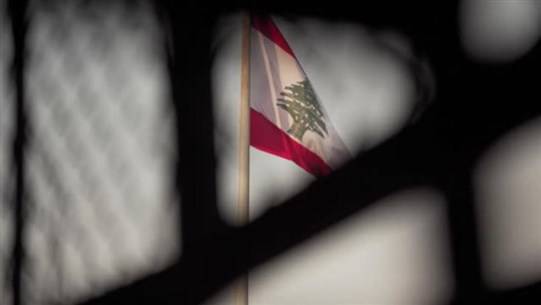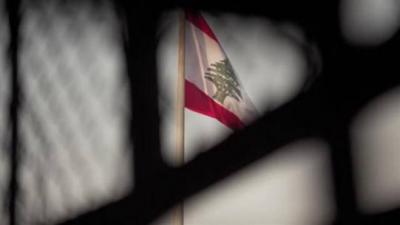A void giving rise to more voids: constitutional, financial, military, and security. This is the situation in Lebanon due to the continued failure of political forces to fill the presidential vacancy that has existed since November 1 of this year. In light of the presidential vacancy, all indicators converge to suggest that it is "here to stay and will extend" into 2023, despite the regular parliamentary electoral sessions held every Thursday. Amidst a caretaker government that cannot wear a "presidential hat," Lebanon, which yesterday quietly and mournfully marked the 79th anniversary of its independence, is living the ramifications of this presidential void on key pillars, fearing that it might lead to a "disruption of the political-constitutional decision-making machinery" in a way the country has not experienced before due to the existence of a fully empowered government that managed governance matters.
During the "era" of presidential vacancy that preceded the election of President Michel Aoun and lasted about 30 months (from May 2014 to October 2016), the government of Prime Minister Tammam Salam managed internal affairs regarding the regular functioning of institutions, providing a "safe passage" that spared Lebanon from disorganized chaos. Today, state administrations face essential obligations related to managing public utilities. In light of the presidential vacancy and the caretaker government, there is a complete inability to address the proposed issues and devise legally and constitutionally covered solutions for sensitive positions that have become "rushing against time," currently under observation and tugged by political and sectarian forces, amidst a highly delicate situation during the ongoing financial collapse, which is open to further "violent waves" exacerbated by the widening "presidential gap," which is also feared to be manipulated in "unstable security territory."
Consequently, discussions have emerged regarding urgent issues of utmost importance, some of which require a council of ministers and directly affect the Lebanese situation and key files, such as senior posts, while others relate to leaders of security agencies, such as general security and the military council, which do not require a cabinet meeting. The first matter is the expiration of the term of the Governor of the Central Bank, Riad Salameh—whose term was renewed by the government of Prime Minister Saad Hariri—expected by the end of May next year, after 30 years in the position. Discussions have begun about the implications of this expiration from multiple angles: financial concerning the turmoil facing the monetary situation, in addition to the political and sectarian dimensions.
The governorship of the Central Bank is one of the foremost Maronite positions in Lebanon. Since the caretaker government cannot appoint a replacement for the outgoing governor, the responsibilities will fall on his First Deputy, Wassim Mansouri, who belongs to the Shia sect. This situation will confuse the internal dynamics and heighten the political crises, increasing the demands from Christian forces concerning the position that the Shia duo will seize through Mansouri, which also raises external concerns.
The second position, also Maronite, is the command of the army, currently held by General Joseph Aoun, whose term expires at the beginning of 2024. This timeframe is not sufficient for the Lebanese to feel assured that they have a year and two months to appoint a replacement, especially since the recent presidential vacancy lasted two and a half years. The void in 2022 seems challenging to assign an "expiration date" to. According to the law, the Chief of Staff acts on behalf of the army commander in the latter's absence and exercises his duties and powers throughout that period. Here lies a set of problems at once; if Aoun's term ends while the presidential void persists, there will be no appointment of a replacement due to the absence of a council of ministers, which has the authority to appoint the army commander by decree based on the proposal of the Minister of Defense.
Additionally, delegating the "commander's" duties to the Chief of Staff could create further issues, as the current Chief of Staff is Druze, and secondly, due to the fact that the current Chief of Staff, Amin Al-Aram, will retire at the end of December this year. This situation has also begun to raise questions regarding the fate of the military council. Al-Aram will retire alongside Major General Milad Iskander, while Major General Malik Shams, the Director General of Administration at the Ministry of Defense, will move to these "positions" in February 2022, which means that the military council will lose three of its members. If the three officers are not extended, the council's decisions will come under the sole control of the army commander.
Once again, the sectarian and political game enters the fray. The Minister of Defense, who can issue a decision to delay the retirement of these officers, is allied with Aoun, and neither the Free Patriotic Movement nor its leader Gibran Bassil has an interest in limiting the authority of the military council to the army commander, at a time when the movement cannot justify extending terms without the current circumstances facing Lebanon. Previously, they rejected the extension for Army Commander General Jean Qahwaji and later for former Intelligence Director Tony Mansour. However, the need justifies the means, and the Free Patriotic Movement finds itself faced with a choice between bad and worse.
The sectarian affiliation of the officers facing retirement—Druze, Shia, and Orthodox—makes the consensus of the political forces that appointed them crucial to finding the most suitable way out of this predicament. The head of the Progressive Socialist Party, Walid Jumblatt, who fought to appoint Al-Aram, insists on keeping him in his position, especially since this position is the highest for the Druze sect in military posts. To this end, two members of the Democratic Gathering, Bilal Abdullah and Hadi Abul-Hasan, presented two draft laws: the first pertains to all general directors, extending their service beyond 64 years (the retirement age) for an additional four years, and the second to postpone the retirement of officers for two years, which would automatically benefit Al-Aram. It is worth noting that the second project is more feasible as it may also encompass the postponement of retirement for the General Security Director, Major General Abbas Ibrahim, who is set to retire in March 2023.
It is still unclear how the negotiations regarding Ibrahim's position will conclude, especially as "Hezbollah" supports his continuation in his role. It seems that the impasse still lies with Parliament Speaker Nabih Berri, who has shelved the two bills until the settlement recipes regarding the mentioned positions mature. It is important to note that Ibrahim's position has become a convention for the Shia sect, placing the Berri-Hezbollah duo before a test of understanding to reach a settlement that allows for Ibrahim's retention, as appointing a replacement is not available. The settlement will also supposedly include the position of the head of the Higher Customs Council, retired Brigadier General Asaad Al-Tufayli, who is also set to retire in the middle of next year.




